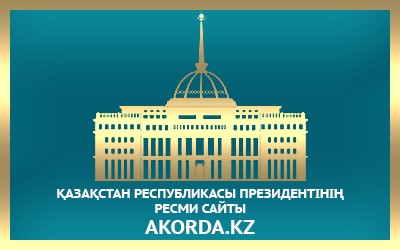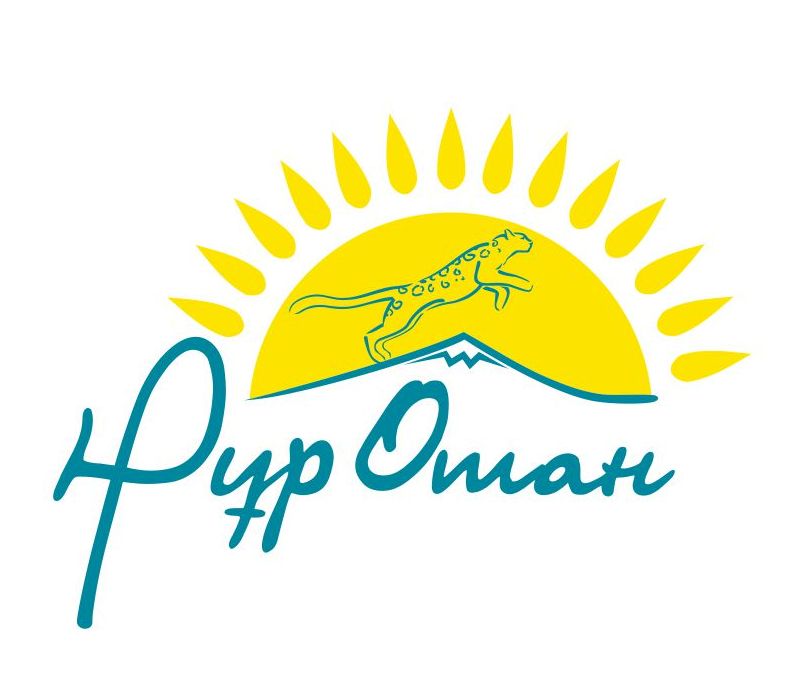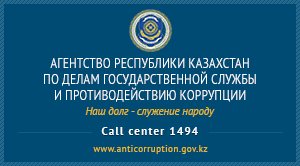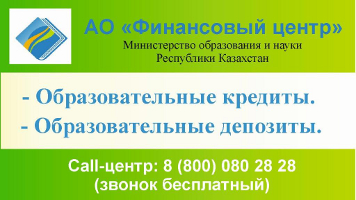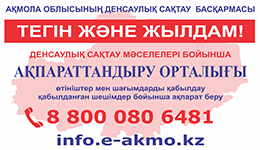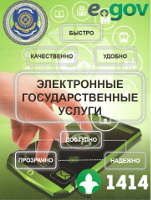
6Б сыныбы "Present Perfect (affirmative, negative)" ағылшын тілі пәнінен ашық сабақ
Dzhaltyr secondary school №4
OPEN ENGLISH LESSON
THE THEME: «PRESENT PERFECT»
FORM: 6 «B»
TEACHER: ZHUNUSSOVA OLBOLSYN MARATOVNA
|
Unit of a long term plan Unit 7 Reading for pleasure Lesson plan 71 |
School: Dzhaltyr secondary school #4 |
||
|
Date:05.03.2020 |
Teacher’s name: Zhunussova O.M.
|
||
|
Class: 6b |
Number present:14 |
Number absent:0 |
|
|
Lesson title |
Present Perfect (affirmative, negative) |
||
|
Learning objectives(s) that this lesson is contributing to |
6.R1 understand the main points in a limited range of short simple texts on general and curricular topics 6.R2 understand with little support specific information and detail in short, simple texts on a limited range of general and curricular topics 6.L8 understand supported narratives, including some extended talk, on an increasing range of general and curricular topics 6.S1 provide basic information about themselves and others at sentence level on an increasing range of general topics 6.S5 recount basic story and events on a range of general and curricular topics 6.W4 write with support a sequence of extended sentences in a paragraph to give basic personal information 6.W6 link, with some support, sentences into coherent paragraphs using basic connectors on a limited range of familiar general topics |
||
|
Lesson objectives |
All learners will be able to:
Most learners will be able to:
Some learners will be able to: Respond to and discuss the reading passage using interpretive, evaluative and creative thinking skills.
Respond to and discuss the reading passage using interpretive, evaluative and creative thinking skills.
|
||
|
Value links |
Cooperation, respect each other's opinion, functional literacy. |
||
|
Cross curricular links |
Social Science, Psychology, Geography, Information Technology. |
||
|
Previous learning |
Talking about young writers. |
||
|
Use of ICT |
Smart board for showing a presentation, getting additional information, playing the audio files. |
||
|
Intercultural awareness |
Discuss experiences in different countries. |
||
|
Health and Safety |
Breaks and physical activities used. Everyday classroom precautions will ensure that safety measures are provided to prevent the exposure of electrical power cords. |
||
|
Plan
|
||||||||||||||||||||||||||||||||||||
|
Planned timings |
|
Resources |
||||||||||||||||||||||||||||||||||
|
Beginning the lesson |
The lesson greeting. The teacher sets the lesson objectives, letting students know what to anticipate from the lesson. Warm up. Ex.1 p.23. Brainstorming. At the beginning of a topic learners create a grid with three columns – what they know; what they want to know; what they have learned. They start by brainstorming and filling in the first two columns and then return to the third at the end of the unit.
|
|
||||||||||||||||||||||||||||||||||
|
Main Activities |
Ex.2 p.23. Classifying verbs.
Answers: Regular: stay-stayed, design-designed, play-played, visit-visited. Irregular: have-had, find-found, sell-sold, write-written, speak-spoken, put-put, go-been/gone, make-made.
Ex.3 p.23. Ticking off items. Answers:
Ex.4 p.23. Creative exercise.
Ex.5 p.23. Speaking in a form of interview. Extra task. Writing practice.
|
|
||||||||||||||||||||||||||||||||||
|
Ending the lesson |
Giving the hometask. WB p.17. Self-assessment.
KWL
|
|
||||||||||||||||||||||||||||||||||
|
End 1min |
Feedback: Teacher asks students what task was difficult to them and which pair worked well. |
|
||||||||||||||||||||||||||||||||||
|
Additional information |
||||||||||||||||||||||||||||||||||||
|
Differentiation – how do you plan to give more support? How do you plan to challenge the more able learners? |
Assessment – how are you planning to check learners’ learning? |
Critical thinking |
||||||||||||||||||||||||||||||||||
|
Differentiation can be achieved through the selection of activities, identification of learning outcomes for a certain student, provision of individual support to learners, selection of learning materials and resources based on the individual abilities of learners. |
Assessment criteria:
Descriptor: A learner:
|
Students think critically, exploring, developing, evaluating and making choices about their own and others’ ideas |
||||||||||||||||||||||||||||||||||
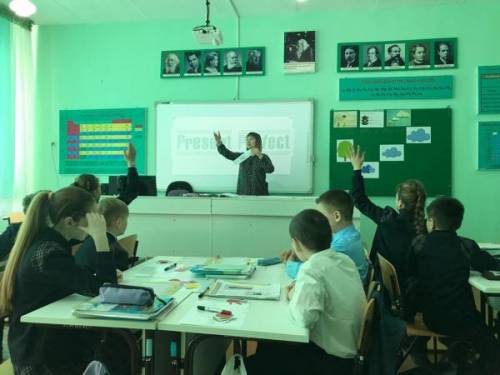
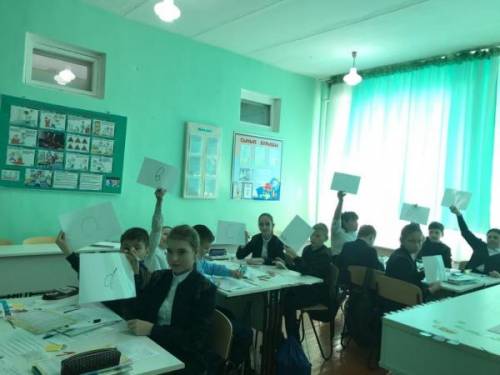



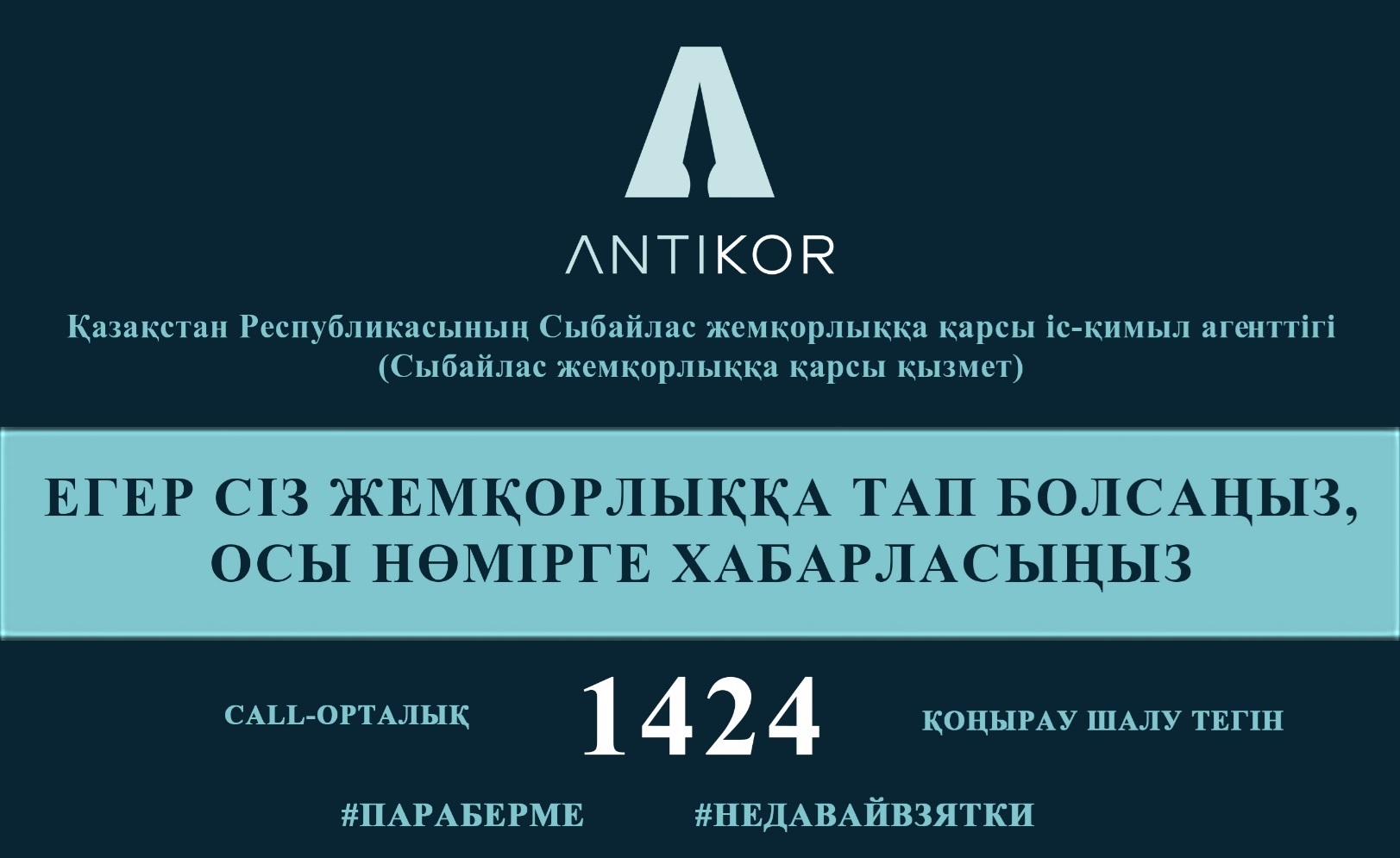
 Мектепке дейінгі балалар ұйымына жолдама қалай алуға болады
Мектепке дейінгі балалар ұйымына жолдама қалай алуға болады
 Мектепке тіркеу үшін құжаттарды қабылдау
Мектепке тіркеу үшін құжаттарды қабылдау

 Сынып сағаты "Тәуелсіздік күні"
Сынып сағаты "Тәуелсіздік күні"
